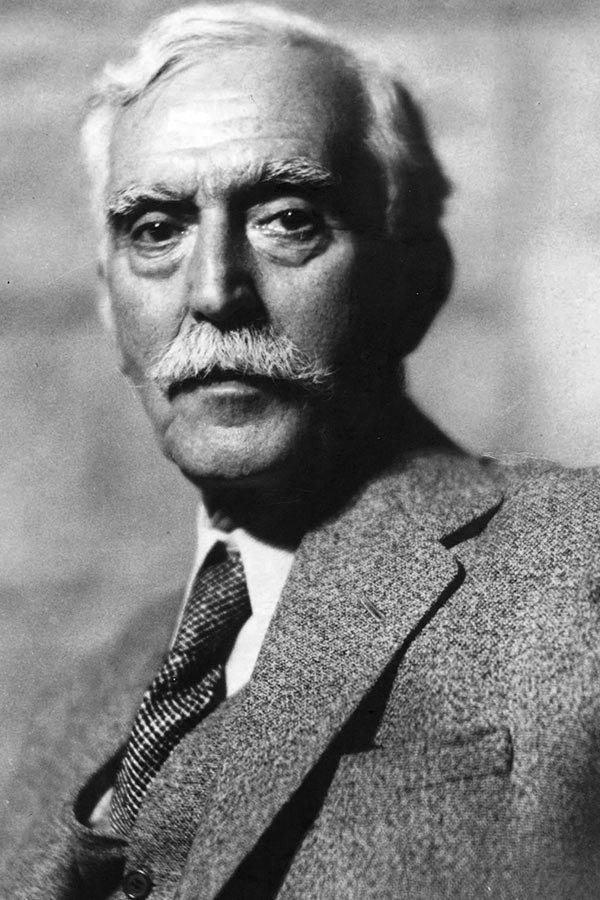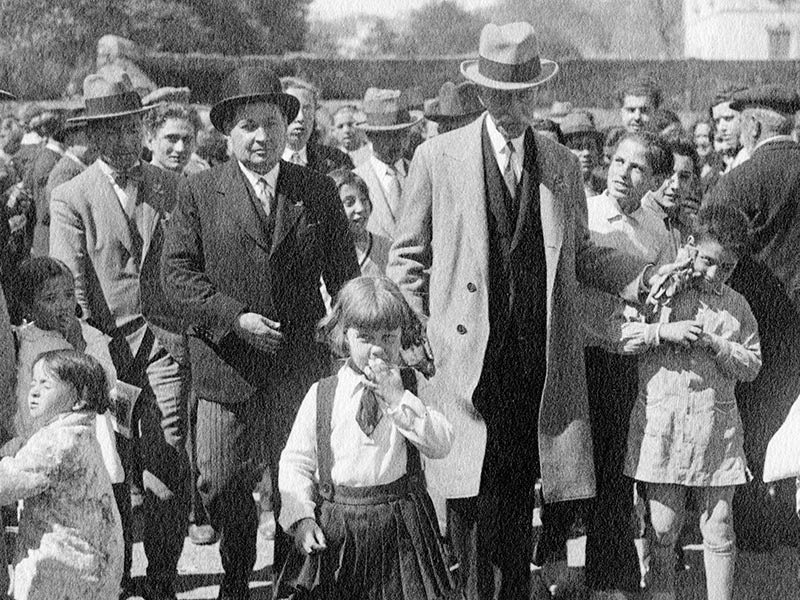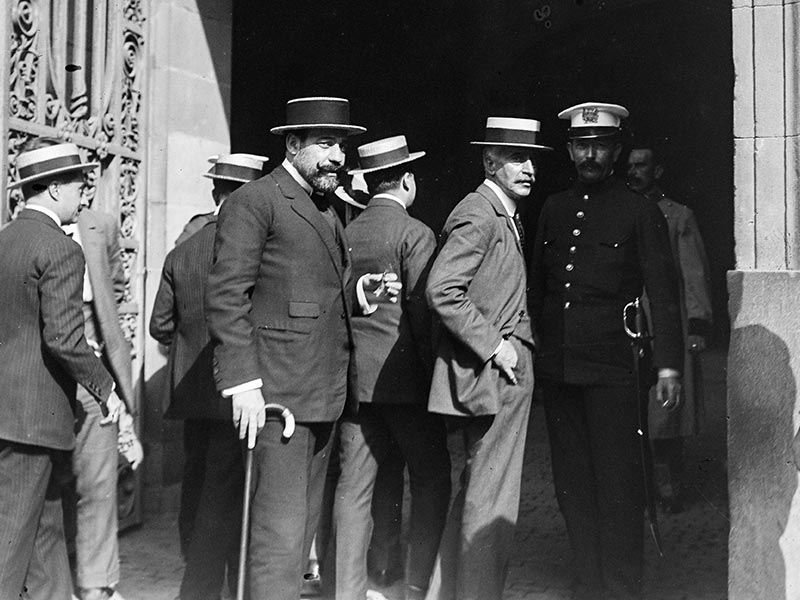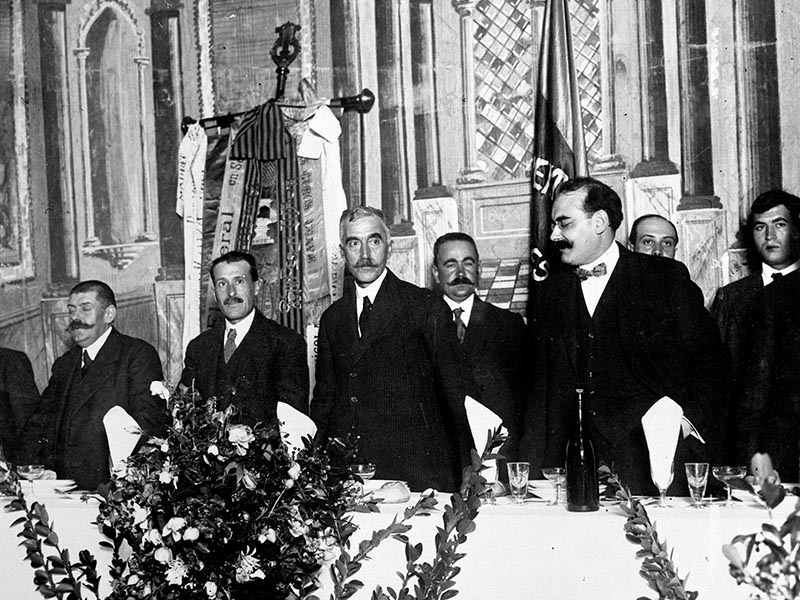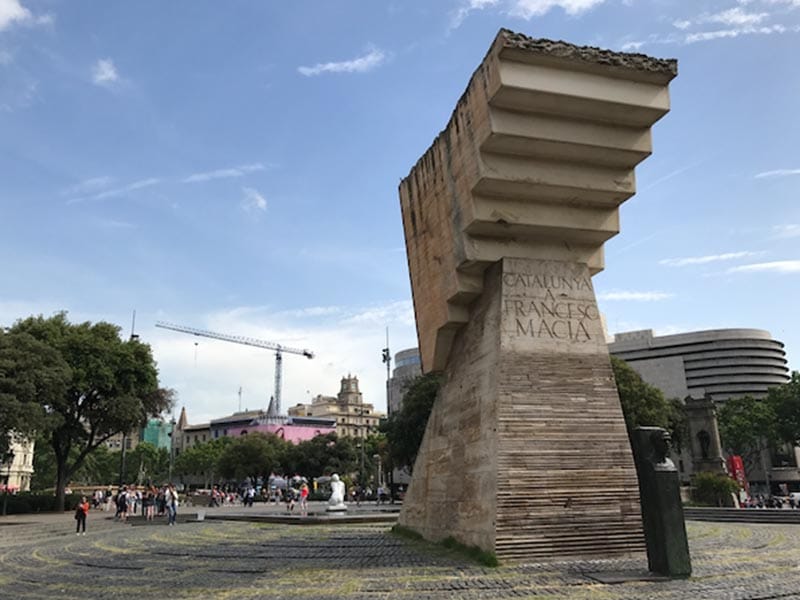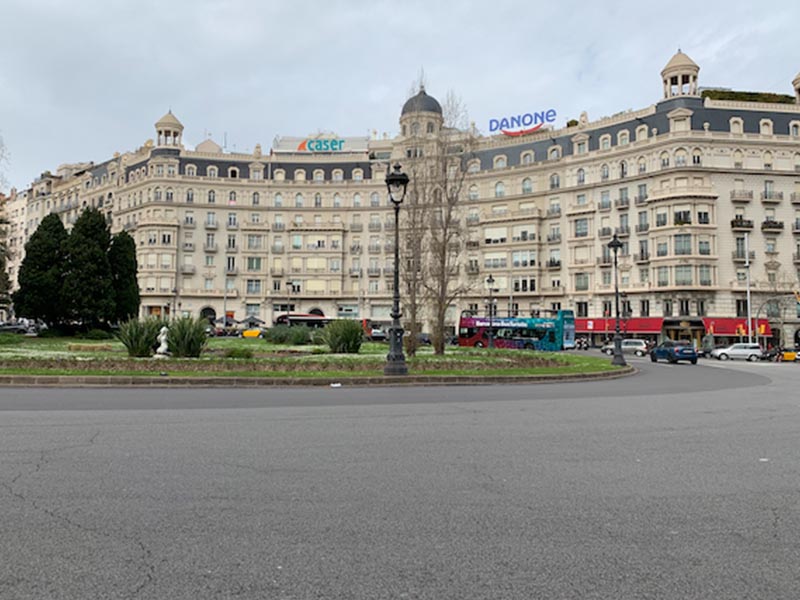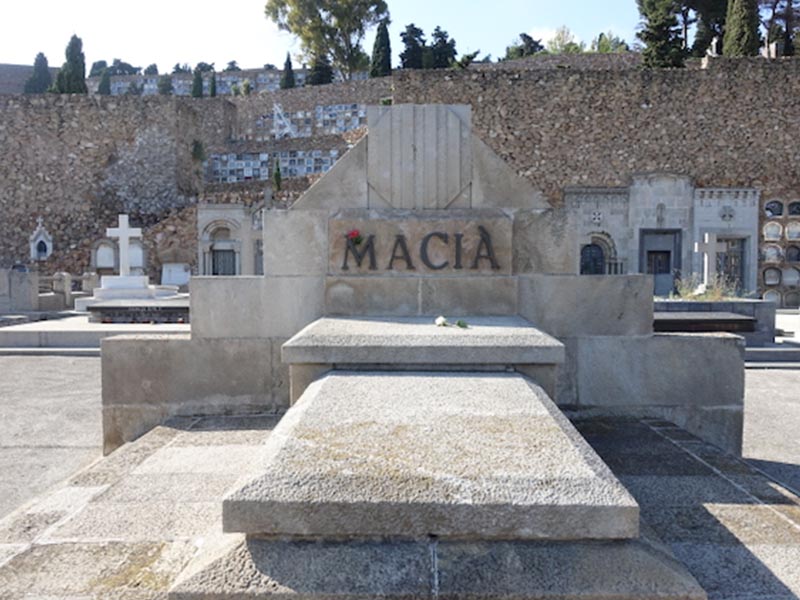Catalunya Barcelona narrator Jenny Beacraft and Josep Maria Figueres discuss Francesc Macià’s background and historical importance to Barcelona and Catalunya.
Francesc Macià i Llussà was the second of seven children, born on October 21, 1859, in the Catalan town of Vilanova i la Geltrú, along the mediterranean coast, 30 miles from Barcelona. His family ran a small olive oil business from the fields of Les Borges Blanques. As a teenager, a year after his father’s death, he enrolled in the Guadalajara military academy. His military service was competent and unremarkable, and it might have stayed that way, were it not for the controversy surrounding the political cartoon in Cu-Cut. Francesc Macià is the defender of Catalanism’s political ideals. He’s an engineer in the military. On November 25, 1905, at night, something terrible happens. The assault, by a military garrison based in Barcelona, on the Galvez print office. It’s headquarters for newspaper La Veu de Catalunya, and weekly magazine ¡Cu-Cut! In truth, the Regionalist League political party were backers of political newspaper, La Veu de Catalunya and, satirical magazine ¡Cu-Cut! They were very critical of the military class, which had been on the losing side of many wars, and were openly hostile towards political Catalanism. So this assault takes place, and the military’s official response to it was horrible. This is an unjustifiable attack on private property. Worst of all, the Spanish military garrisons and the war ministry support to this assault. Francesc Macià doesn’t understand this at all, and quits the military. This is creates a stir, and he enters politics, Winning the district of Les Borges Blanques. And he’ll keep winning. This occurs in concert with a crisis in the Spanish political system in 1917, and the push for a statute of autonomy in 1918 and 1919. And, as well, there’s the Spanish military reaction. A military dictatorship to quash the push toward autonomy. Amid all of this, Macià becomes the champion of both Catalan nationalist and social causes. Despite coming from a good, well-off family, he is attuned to the acute social tensions so prevalent at the beginning of the 20th century. He understands the need to champion the working class. This link with the working class, with Catalan nationalism, with democracy, will make him more than esteemed and admired, but also a powerful political force. This will earn him his nickname, given out of love, l’avi, The Grandfather, and his death on Christmas, in 1933, will inspire great unrest. He dies Christmas Day, tragically, and, as such, a great affinity for and with him develops. Macià is the alternate ideal because he fights against Primo de Rivera’s dictatorship militarily, with weapons in hand. And that’s the Prats de Molló plot. With the Prats de Molló plot, he attempts to lead an uprising. It will fail, this act of war, but it will lead to a trial of great importance, followed throughout Europe. He’s defended by a great lawyer, Henri Torrès, and illustrates the degree of repression. As World War I was coming to a close, as Woodrow Wilson’s Fourteen Points were making their rounds, with the revival of certain nations, with the Irish War of Independence, the push for republics in the Baltics…Estonia, etc. so too does the political situation in Catalonia enter European political conscience. No agreement is come to, no victory can be claimed, but it is the call to arms that inspires republican victory. And before the proclamation of the 2nd Republic, a provisional statute of autonomy is included. There is a provisional Generalitat, and a vote–by males, as women suffrage won’t arrive for three years–on the statute will be held. As such, in 1931, a provisional Generalitat of Catalunya will be in place, with Francesc Macià serving as president. His death in 1933 will mark the end of one of Spain’s most dynamic periods, the first three years of the second Republic.
